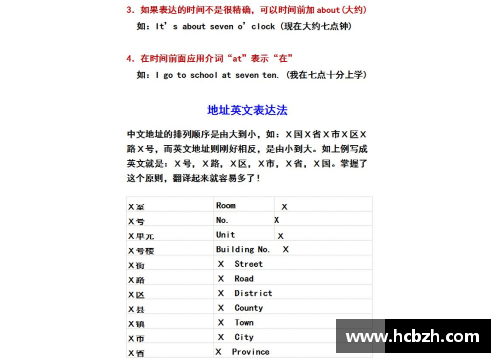Article abstract: This article explores practical English expressions that are incredibly useful. It delves into four key aspects, highlighting their significance and providing detailed explanations. By examining these essential expressions, readers can enhance their English proficiency and communication skills.
1、Commonly Used Phrases
Commonly used phrases play a vital role in everyday communication, allowing individuals to express themselves clearly and effectively. These phrases are widely recognized and understood, making conversations smoother and more natural. For instance, phrases like "excuse me," "thank you," and "you're welcome" are essential in social interactions. They convey politeness, gratitude, and acknowledgement, contributing to positive relationships and interactions.
Moreover, expressions such as "I'm sorry to hear that," "take care," and "have a nice day" demonstrate empathy and care towards others. By incorporating these phrases into conversations, individuals can show support and goodwill, fostering stronger connections and rapport with others.
Additionally, learning common idiomatic expressions like "break a leg," "cost an arm and a leg," and "piece of cake" adds depth and richness to one's language skills. These expressions, rooted in cultural context, enhance the fluency and expressiveness of communication, making interactions more engaging and dynamic.
2、Useful Business Jargon
Business jargon encompasses specialized terms and expressions commonly used in professional settings. Mastering these expressions is crucial for effective communication in the workplace, as they convey specific meanings and foster clarity in discussions. For example, phrases like "on the same page," "action items," and "best practice" streamline communication and ensure that all team members are aligned and informed.
Furthermore, understanding business acronyms such as "ROI" (Return on Investment), "B2B" (Business-to-Business), and "KPI" (Key Performance Indicator) enhances one's business vocabulary and demonstrates industry knowledge and competence. Using these acronyms appropriately can facilitate concise and precise communication, essential in professional environments.
Moreover, mastering expressions like "think outside the box," "close the loop," and "touch base" showcases creativity, decisiveness, and proactiveness in business interactions. These expressions are valued for their innovation and strategic thinking, contributing to successful collaborations and problem-solving in the workplace.
3、Polite and Diplomatic Language
Polite and diplomatic language is crucial in various social and professional contexts, as it reflects respect, courtesy, and tact in communication. Phrases like "if you don't mind," "I would appreciate it if," and "would you be so kind as to" convey consideration and politeness when making requests or suggestions.
半岛bandao体育官方Additionally, diplomatic expressions such as "I understand your concerns," "let's find a middle ground," and "we value your feedback" demonstrate empathy, openness, and willingness to collaborate in discussions or negotiations. By using diplomatic language, individuals can navigate sensitive topics with diplomacy and professionalism, fostering constructive dialogue and relationship building.
Furthermore, mastering polite refusals like "I'm afraid I can't," "I have prior commitments," and "perhaps another time" allows individuals to decline offers or invitations gracefully and respectfully. These expressions uphold social etiquette and prevent misunderstandings or offense in social interactions.
4、Effective Communication Strategies
Effective communication strategies are essential for conveying messages clearly and persuasively, fostering understanding and engagement in conversations. Techniques such as active listening, paraphrasing, and clarifying ensure that both parties are on the same page and understanding each other accurately.

Moreover, using assertive language, positive affirmations, and open-ended questions enhances communication dynamics and encourages collaboration and problem-solving. Assertive language conveys confidence and clarity, while positive affirmations and open-ended questions promote a constructive and proactive dialogue.
Furthermore, practicing non-verbal communication cues like eye contact, facial expressions, and body language enhances the overall effectiveness of communication. These non-verbal cues add depth and meaning to verbal messages, facilitating better understanding and connection between communicators.
Summary:
In conclusion, mastering practical English expressions is essential for improving communication skills and fostering effective interactions in various contexts. By incorporating commonly used phrases, useful business jargon, polite and diplomatic language, and effective communication strategies into one's language repertoire, individuals can enhance their linguistic proficiency, expressiveness, and interpersonal relationships. Embracing these expressions not only enriches one's language skills but also facilitates clearer, more engaging, and more impactful communication experiences.

发表评论